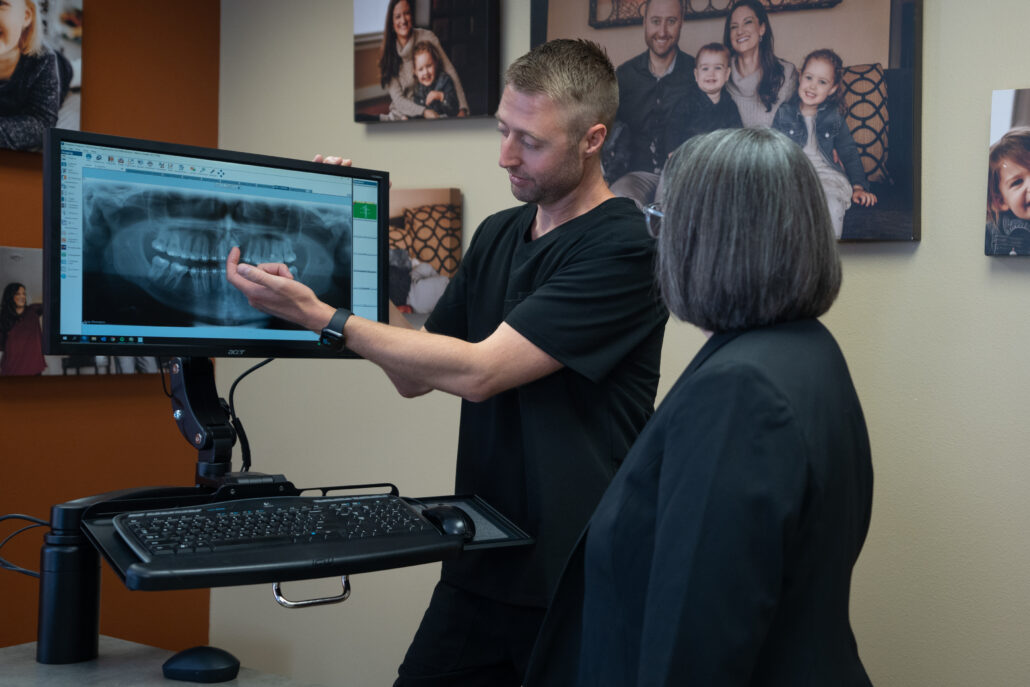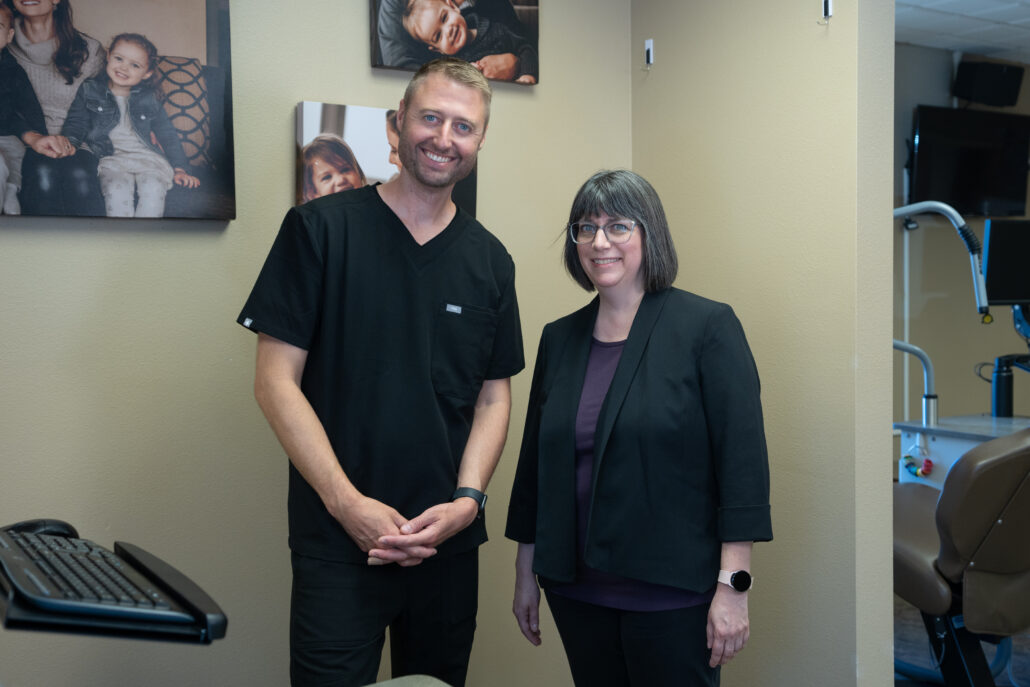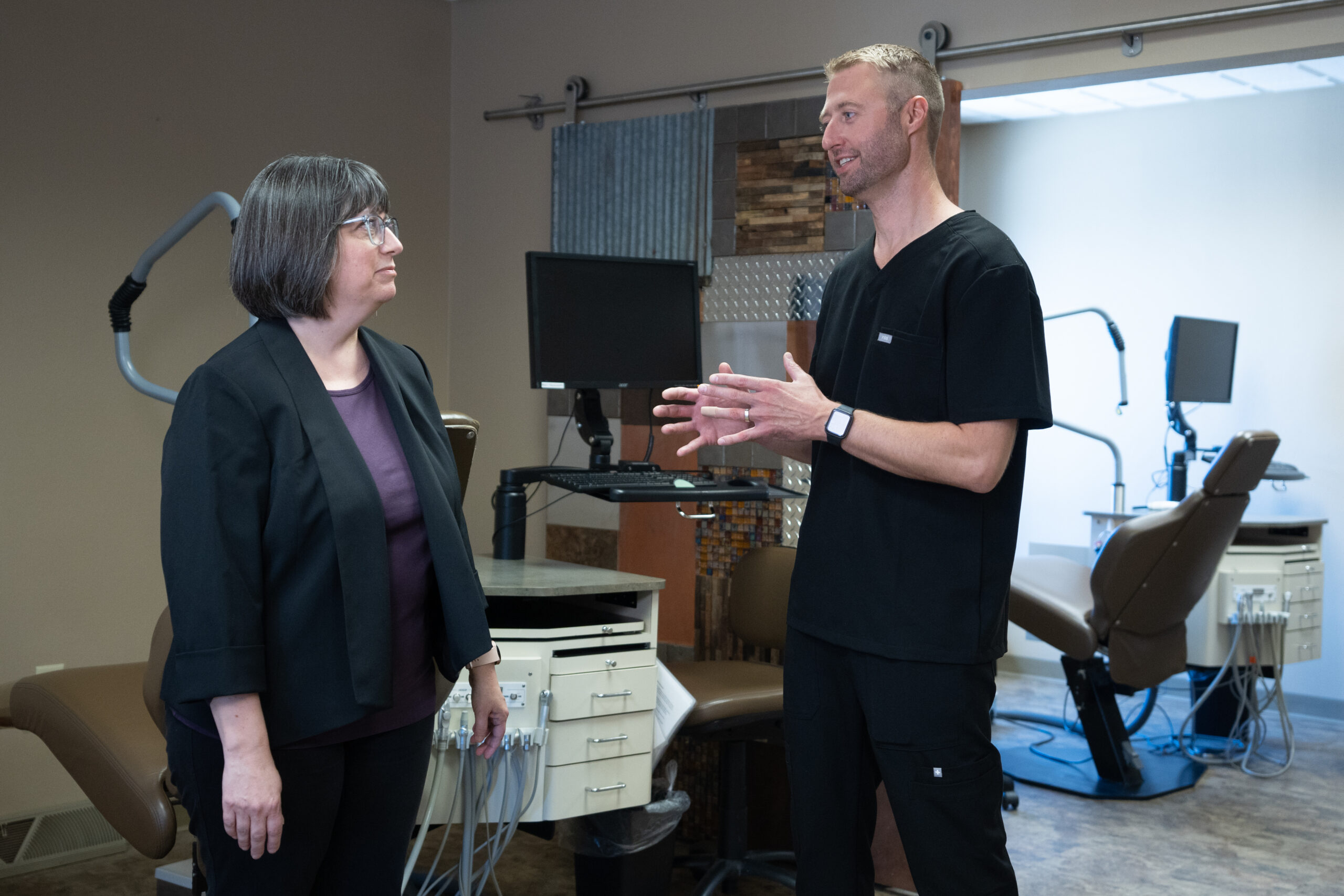We often encounter questions about the difference between dentists and orthodontics at Feil Orthodontics. We hope to clear that up for you today!
What Is A Dentist?
A dentist is a medical professional who cares for your teeth and gums. From the front teeth that you see when you smile to the molars at the back of your mouth, dentists have the expertise to treat them all.
Dentists also play a crucial role in preventive care. Regular cleanings remove plaque and tartar, substances that brushing at home might miss. Dental teams are great resources to receive personalized guidance for the best oral hygiene practices, ensuring you maintain healthy habits between visits and minimize potential issues.
What Is An Orthodontist?
An orthodontist is a specialized dentist with extra training in making sure teeth are aligned correctly. While all orthodontists are dentists, not all dentists are orthodontists. It’s a bit like how all squares are rectangles, but not all rectangles are squares.
Orthodontists, like our Dr. Feil, focus on correcting bites, straightening teeth, and ensuring our jaws line up correctly. This specialty is important to your physical, mental, and oral well-being.

What Do They Treat?
Though dentists and orthodontists both attend dental school, they do not provide the same services! Let’s get more specific:
Dentists
Dentists are the generalists of the oral world. They’re like the primary physician of your teeth! They tackle a wide range of issues, including but not limited to the following:
- Cavities: These are small holes in our teeth caused by decay. Dentists fill them to prevent further damage.
- Gum Disease: This is when our gums become inflamed or infected. Dentists can treat it with cleanings or other procedures.
- Toothaches: Whether it’s from a cavity, an infection, or something else, dentists find the cause and provide relief.
- Tooth Damage: Chipped, cracked, or broken teeth? Dentists can repair or replace them.
- Prevention: Dentists also guide us on how to avoid problems in the first place with advice on brushing, flossing, and diet.
- Referrals: Depending on your specific need, your dentist may recommend you see a specialist, such as a periodontist or an orthodontist.
Orthodontists
Orthodontists, on the other hand, are specialists in teeth and jaw alignment. If you’ve ever noticed your teeth are crooked, crowded, or spaced too far apart, orthodontists have the expertise to address these issues. Misalignments can cause a range of problems, including difficulty chewing, poor digestive and oral health, uneven wear on the teeth, and decreased self-esteem.
They also tackle bite issues, such as overbites (where the upper teeth protrude too far over the lower teeth), underbites (where the lower teeth sit in front of the upper teeth), and crossbites (where some upper teeth sit inside the lower teeth).
Their specialized training and tools allow them to craft functional bites and beautiful smiles, making sure that every part of our mouth works in sync.
If Orthodontists Are Dentists, Do I Need To See Both?
For the safest orthodontic experience, your teeth and gums must be healthy. Issues in your oral health can complicate your orthodontic experience and cause cosmetic problems, so yes, without a doubt, you should continue seeing your trusted dentist after you begin your orthodontic journey! While an orthodontist might notice something amiss in your mouth, their offices are not equipped to treat what they see. Attending your regular dental cleanings and check-ups keeps your mouth in perfect condition.
If My Dentist Provides Clear Aligners, Do I Need To See An Orthodontist?
Yes, you should still see an orthodontist! Clear aligners have become popular for obtaining a straighter smile; however, it’s essential to understand that while they can be effective for some, they might not be the best solution for everyone.
With their broad training in oral health, dentists often provide clear aligners as a one-size-fits-all solution. But teeth alignment is complex, and each individual’s needs can vary significantly. Though clear aligners can correct many misalignments, they cannot address more intricate orthodontic issues.
This is where the specialized expertise of an orthodontist, like those at Feil Orthodontics, becomes invaluable. Included alongside their vast orthodontic knowledge is a range of treatment options. Traditional metal braces, clear braces, and Invisalign are just a few of the tools in their arsenal. Each treatment is tailored to the patient’s unique needs, ensuring optimal results and long-term oral health.

Your Orthodontic Specialist Since 2009!
As you can see, both oral healthcare providers are crucial to your smile’s success and are not mutually exclusive! Your smile is an investment worth making, and with the proper guidance from the necessary provider, it will shine brilliantly for a lifetime.
Learn more about Feil Orthodontics and how we can transform your smile by visiting one of our convenient offices in Bismarck, Mandan, and Beulah or by clicking here.
